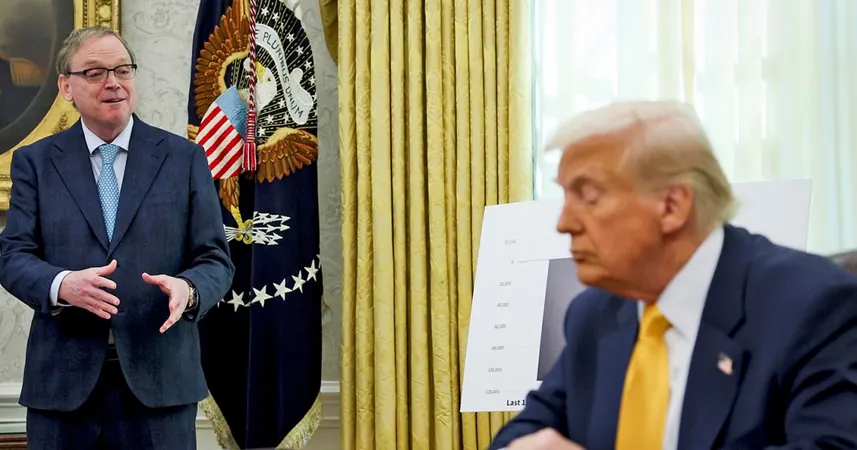
Could the U.S. Government Become a Major Player in Private Companies? Here's What We Know!
2025-08-25
Author: Ming
The idea of the U.S. government owning stakes in private companies is gaining traction, with President Donald Trump’s economic advisers hinting at further investments. Following the government's recent acquisition of nearly 10% of Intel, National Economic Council Director Kevin Hassett stated that more such moves could be on the horizon.
This significant investment was made possible through funds designated in the CHIPS and Science Act, aimed at boosting the semiconductor industry. Hassett compared this action to a 'down payment' towards a potential American sovereign wealth fund, similar to those in use by various countries around the globe.
Historically, the federal government has only taken ownership stakes in extraordinary situations, like during the 2008 financial crisis, but Hassett’s comments suggest a new strategy focused on fostering U.S. manufacturing and technology.
The CHIPS Act has already yielded over $200 billion in private sector investments, which many hope will translate into new jobs in the U.S. as companies ramp up domestic production.
Despite reassurances that the government is not in the business of 'picking winners and losers,' current developments indicate otherwise—such as the U.S. now becoming Intel's largest shareholder and previously taking a significant interest in U.S. Steel.
After the Intel deal was announced, Trump boasted on Truth Social about the investment, claiming, "I PAID ZERO FOR INTEL, IT IS WORTH APPROXIMATELY 11 BILLION DOLLARS. All goes to the USA." This claim raised eyebrows since the government actually invested nearly $9 billion for its shares.
In an era of trade negotiations and increasing scrutiny of corporate pricing strategies, Trump’s interventionist stance has drawn mixed reactions, even from within his own party. Nikki Haley, former U.N. ambassador, remarked on social media, "Intel will become a test case of what not to do," highlighting concerns over governmental overreach in the private sector.
As discussions around a potential U.S. sovereign wealth fund continue, Hassett acknowledged that the government’s acquisitions could indeed form the foundations of such a fund. He emphasized that while the U.S. has taken equity stakes before, increasing these investments might redefine the government's role in the economy.
With ongoing economic shifts and new strategies emerging, all eyes will be on how the U.S. navigates its growing involvement in private enterprises and the potential long-term implications for both investors and the economy.




 Brasil (PT)
Brasil (PT)
 Canada (EN)
Canada (EN)
 Chile (ES)
Chile (ES)
 Česko (CS)
Česko (CS)
 대한민국 (KO)
대한민국 (KO)
 España (ES)
España (ES)
 France (FR)
France (FR)
 Hong Kong (EN)
Hong Kong (EN)
 Italia (IT)
Italia (IT)
 日本 (JA)
日本 (JA)
 Magyarország (HU)
Magyarország (HU)
 Norge (NO)
Norge (NO)
 Polska (PL)
Polska (PL)
 Schweiz (DE)
Schweiz (DE)
 Singapore (EN)
Singapore (EN)
 Sverige (SV)
Sverige (SV)
 Suomi (FI)
Suomi (FI)
 Türkiye (TR)
Türkiye (TR)
 الإمارات العربية المتحدة (AR)
الإمارات العربية المتحدة (AR)